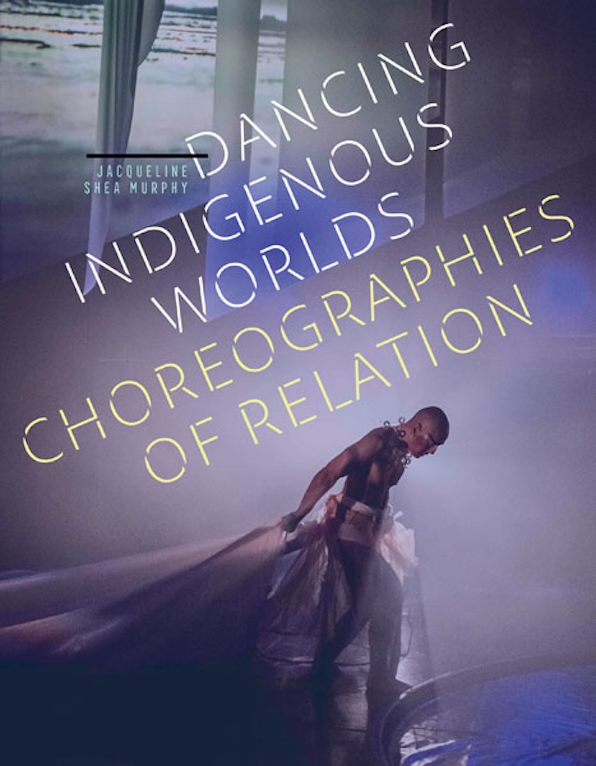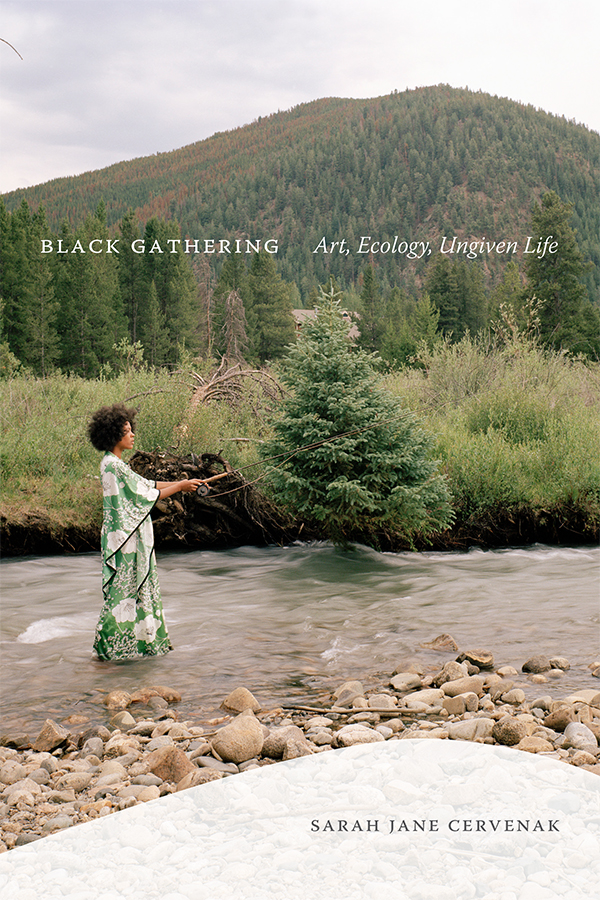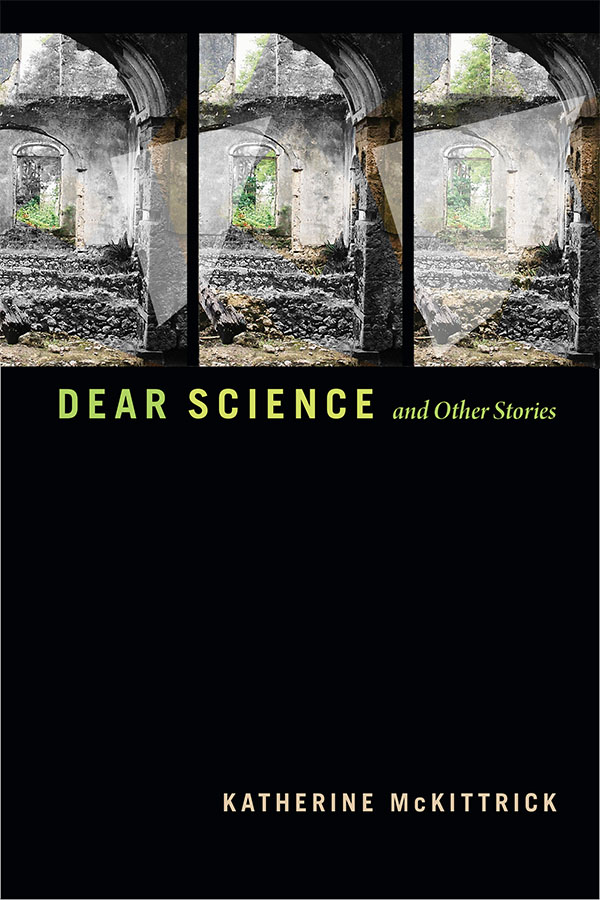Jacqueline Shea Murphy’s Dancing Indigenous Worlds deals with her participation in festivals, performances, and conversations with Indigenous dance artists, whose practices enact, register, and experience relationality. Relationality is both an expression of Indigenous ways of being and knowing and an integral part of dance work, including all the activities produced around it. Each chapter of the book explores in depth an aspect of relationality based on the work of an artist and the descriptions of the experiences and sensations that each of these has awakened in the author, both in the author’s voice and that of her interlocutors.
Keyword: relationality
Review of Black Gathering: Art, Ecology, Ungiven Life by Sarah Jane Cervenak (Duke University Press)
In Black Gathering: Art, Ecology, Ungiven Life, Sarah-Jane Cervenak engages with the ecoaesthetic, ecopoetic, and ecoliterary work of Black artists and writers who, through their engagement with the environment, imagine the earth and Black life outside the logics of governance, property and ownership. Guided by two primary concepts, Cervenak considers “Gathering” and “Ungiven” as crucial frameworks to think otherwise about Black sociality, togetherness, and gathering aesthetically. By attending to the creative and artistic practices of Toni Morrison, Nikki Wallschlaeger, Samiya Bashir, Gabrielle Ralambo-Rajerison, Gayl Jones, and Leonardo Drew, Cervenak underlines “gathering” as both an act of resistance to the enclosures of anti-blackness and an insistent practice of “deregulated togetherness.”
Review of Remembering Our Intimacies: Moʻolelo, Aloha ʻĀina, and Ea by Jamaica Heolimeleikalani Osorio (University of Minnesota Press)
Jamaica Heolimeleikalani Osorio foregrounds the intimate in aloha ʻāina, a Kanaka Maoli conception of caring for land, or that which feeds. She provides a close reading of the classic Hawaiian epic Hiʻiakaikapoliopele alongside contemporary Kanaka Maoli battles with settler colonialism and heteropatriarchy. Osorio engages the uniquely Kanaka Maoli genre of moʻolelo by modulating seamlessly between the interpersonal and structural, analysis and composition, and the nineteenth century and the present day.
Review of Dear Science and Other Stories by Katherine McKittrick (Duke University Press)
With Dear Science and Other Stories, Katherine McKittrick does the work of liberation and enacts new ways of being. Building on her previous studies, this collection engages in a story-sharing, collaborative praxis that emerges from a “black sense of place.” McKittrick’s Black and anti-colonial methodologies are “rebellious,” “relational, intertextual, and interdisciplinary”—thereby “breaching” the “recursive,” “self-replicating” logics of “our present order of knowledge” (44, 2, 23, 163). Dear Science invents, reinvents, and reimagines “being human as praxis” through an aesthetic practice of deciphering theoretical texts, photographs, sounds, dance, and song (159). Illustrating her commitment to Black intellectual life, McKittrick writes, listens, and feels in communion with other creatives. In so doing, McKittrick skillfully bursts open the gatekeeping conventions that limit thought, and challenges readers to question what they think they know.



